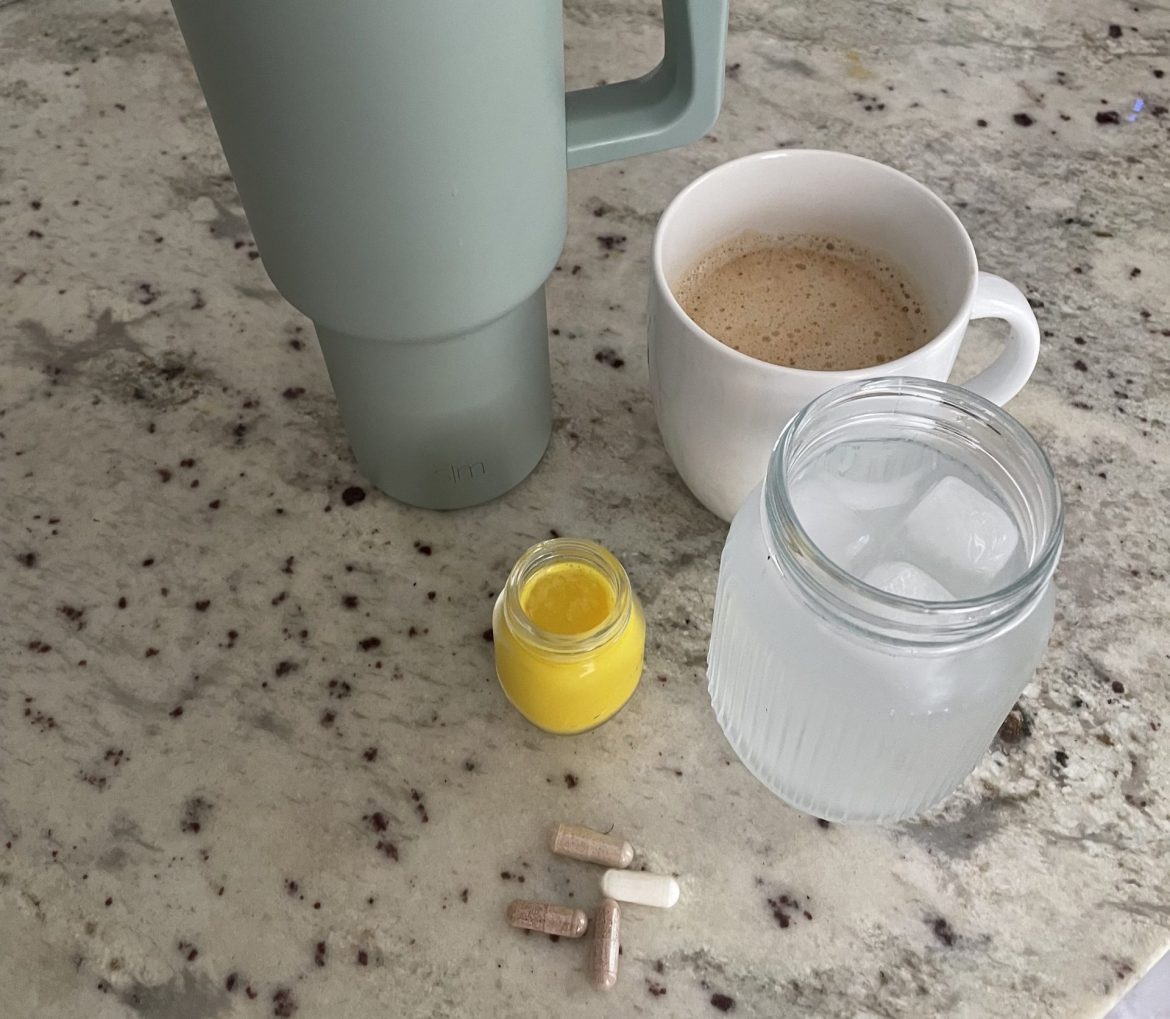Biotin – also known as vitamin B7 or vitamin H, is a water-soluble B-vitamin that plays a crucial role in helping your body convert food into energy. It’s part of the B-vitamin family, which helps keep your skin, hair, eyes, liver, and nervous system healthy.
Biotin is especially popular in the wellness and beauty space for its role in supporting strong hair and nails — but its benefits go far beyond aesthetics.
What is biotin?
Biotin is a coenzyme — meaning it helps enzymes function properly — and is essential for the metabolism of carbohydrates, fats, and proteins. It helps your body turn the nutrients you eat into usable energy, making it vital for everyday cellular function. Since it’s water-soluble, your body doesn’t store biotin, so you need to get it regularly through your diet or supplements.
You can find biotin naturally in foods like:
-
Eggs (especially the yolk)
-
Nuts and seeds
-
Salmon
-
Sweet potatoes
-
Spinach
-
Broccoli
-
Whole grains
-
Bananas
What is biotin used for?
Biotin is primarily used for its role in metabolism and maintaining healthy bodily functions, but it’s also commonly used as a supplement to:
-
Improve hair health: Biotin supplements are often marketed for strengthening hair and promoting growth.
-
Strengthen nails: People with brittle nails often take biotin to help improve thickness and reduce breakage.
-
Support skin health: Although research is limited, biotin is sometimes used to improve dry or irritated skin.
-
Assist in pregnancy and breastfeeding: Biotin needs may increase during pregnancy, and deficiencies can be common. Always consult your doctor before taking supplements during this time.
-
Support nervous system health: Biotin is vital for nerve function and overall cognitive health.
-
Manage blood sugar levels: There is some evidence that biotin, especially when combined with chromium, may support better blood sugar control in people with diabetes.
Benefits of biotin
Here’s a breakdown of the most talked-about benefits of biotin:
1. Healthier hair
Biotin is perhaps best known for promoting hair growth and strengthening hair follicles. While research is still ongoing, many people who are deficient in biotin report hair thinning or hair loss, and supplementation can help reverse these symptoms.
2. Stronger nails
If you struggle with weak, brittle nails that break easily, biotin might help. Studies suggest that biotin supplementation can increase nail thickness by up to 25%, reducing splitting and breakage.
3. Improved skin appearance
Biotin contributes to the maintenance of healthy skin. A deficiency may cause dry, scaly skin or a red rash, especially around the eyes, nose, and mouth. While it’s not a cure-all, adequate levels of biotin support the skin’s barrier function and hydration.
4. Boosted energy and metabolism
Since biotin helps convert food into fuel, it supports healthy metabolic function. It’s essential for the metabolism of glucose, amino acids, and fatty acids, which can contribute to steady energy levels throughout the day.
5. Brain and cognitive support
Biotin plays a role in neurotransmitter activity and helps maintain the health of the nervous system. This is particularly important for mood, memory, and cognitive function.
Should you take a biotin supplement?
If you’re eating a balanced diet, you likely get enough biotin naturally. However, certain factors — such as pregnancy, smoking, chronic use of antibiotics, or having conditions like Crohn’s disease — can interfere with biotin absorption. In such cases, a supplement might be beneficial.
That said, always speak with a healthcare provider before starting any new supplement. Too much biotin can interfere with certain lab tests, especially thyroid and heart diagnostics, leading to inaccurate results.
Biotin is a small but mighty vitamin that contributes to a wide range of bodily functions, from metabolism to beauty benefits. Whether through your diet or a supplement, ensuring you get enough biotin is a smart step toward feeling your best — inside and out.
ALSO SEE:
FeaturenImage: Dupe Photos

